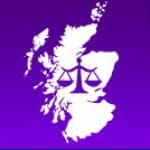News

Silence - video

"Silence" is a short documentary film narrated through personal experience of partner rape, and reveals the wider implications of rape myths. You can see the film at : www.youtube.com/watch?v=hVy18zK-ULw
Feminist calendar in aid of the Women's Support Project

Rape Crisis Scotland has produced a calendar to raise funds for a vital service in Glasgow. The calendar features vibrant feminist graffiti art and inspiring quotes for every month of 2012.
Every calendar purchased will help to safeguard the future of the Women's Support Project, to whom all proceeds will be donated.
New Rape Crisis National Service Standards and National Statistics on Rape Crisis Services in Scotland
To coincide with International Day to Eliminate Violence Against Women, Rape Crisis (England and Wales) and Rape Crisis Scotland have launched their new National Service Standards for Rape Crisis Centres. The standards represent a collaboration between the two national umbrella organisations and are the culmination of a process of research, reflection, consultation and definition spanning five years.
The standards describe in detail what is needed in order to deliver effective specialist sexual violence services. They cover the wider aspects of managing an organisation as well the more specific detail of services to survivors of rape and sexual assault such as the need to provide confidentiality and ensure safety. Please click here for a full press statement.
Rape Crisis Scotland is also publishing for the first time statistics outlining the services provided by rape crisis centres across Scotland. These provide, for the very first time, a picture of the range services offered to survivors of sexual violence throughout the country, and a broad profile of those who are accessing these.
Ten centres participated in the project: Argyll & Bute, Dundee, Dumfries & Galloway, Fife, Glasgow, Edinburgh (including ELSAS their East Lothian project), Lanarkshire, Perth & Kinross, Scottish Borders and the Western Isles.
72% of callers to Rape Crisis Centre helplines are calling for the first time. The statistics shown give a summary of the support offered by these centres for the period 1 April 2010 – 31 March 2011. It is clear from these figures that there is a significant demand for rape crisis services across the country.
It is important to note that the actual level of support offered by RCCs in Scotland is greater than the figures given here. These figures represent the data from the ten participants of our 13 member centres during the project.* In addition, the actual level of prevalence of sexual violence in Scotland is likely to be far greater than the figures represented here, as many survivors of sexual violence don’t feel able to tell anyone about what has happened to them.


*Statistics for the other three member centres – Aberdeen, Central Scotland and Kilmarnock may be available either from their websites or by contacting the centre directly. Please visit www.rapecrisisscotland.org.uk for contact information.
Please contact Rape Crisis Scotland on 0141 331 4180 or email info@rapecrisisscotland.org.uk for further information. You can also download the information on this page as an Information Paper.
Latest posts
- Rape Crisis Scotland chief executive steps down after 24 years
- Our response to Lord’s Advocate’s letter
- We talk a lot about the rise of rape and sexual violence, let’s talk about how to stop it
- Statement: Supreme Court ruling on Daly v HM Advocate; Keir v HM Advocate
- An open letter: Women against the Far Right Scotland

